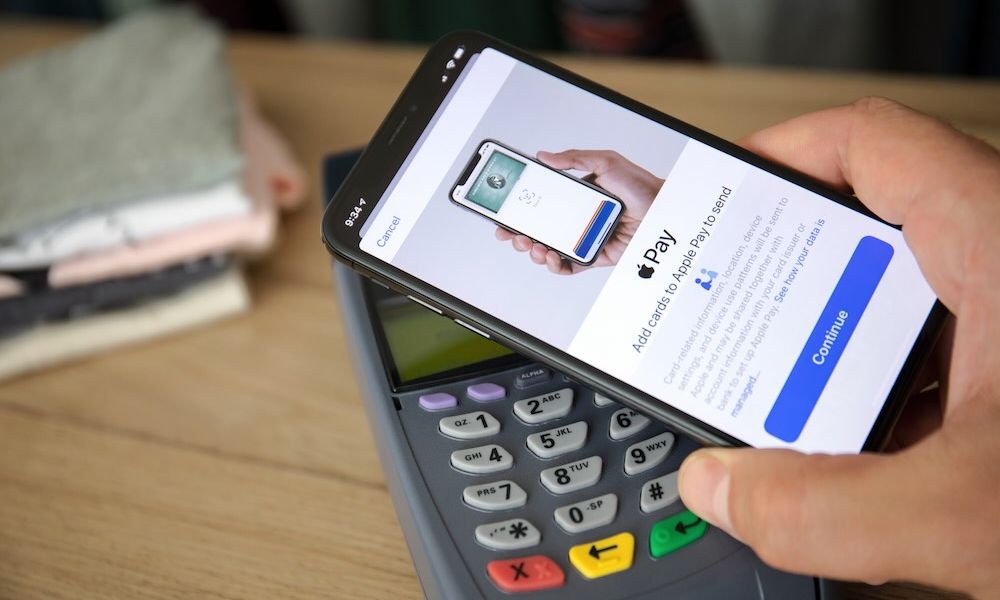Apple Pay Will Be Regulated More Like a Bank
 Credit: DenPhoto / Adobe Stock
Credit: DenPhoto / Adobe Stock
Toggle Dark Mode
Apple’s financial services will soon be regulated by US officials in the same way as banks and other financial institutions, as the government’s financial protection watchdog gains oversight of all fintech companies offering digital wallets like Apple Pay.
Late last year, the Consumer Financial Protection Bureau (CFPB), an independent US government agency under the Federal Reserve, called on government officials to give it “bank-like supervision” over the companies behind the most popular digital wallet apps.
The CFPB has been charged with overseeing traditional financial institutions for years with the aim of protecting consumers from exploitative practices by banks, lenders, and other financial institutions. However, services like Apple Pay, Google Pay, PayPal, and CashApp are outside of its zone of responsibility.
In fact, these companies have virtually no financial oversight. That’s something CFPB Director Rohit Chopra has sought to change since taking over the CFPB in 2021. Chopra has gone on the record as expressing concerns about the blurred lines between the “closely regulated banking sector” and the tech sector as big players like Apple expand into financial services.
Digital payments have gone from novelty to necessity and our oversight must reflect this reality.Rohit Chopra, CFPB Director
Now, Paige Smith at Bloomberg reports that Chopra and the CFPB have convinced US government officials that this oversight is required, although there have been some changes to the original 2023 proposal.
For one, the threshold before a tech company gets regulated like a bank will be 50 million transactions a year, a significantly higher bar than the 5 million that was initially proposed. This also only applies to transactions conducted in US dollars.
That works out to seven major technology companies that “account for virtually all of the market,” Smith reports. The lower threshold from the initial proposal would have encompassed 17 firms.
Apple doesn’t handle any money directly; Apple Cash goes through Green Dot Bank and the Apple Card and Apple Card Savings Accounts are handled by Goldman Sachs, both of which are banks that have been under CFPB’s purview all along. Apple an arms-length subsidiary, Apple Payments Inc, which is responsible for the payment processing of the Apple Cash card through the Visa debit network, but transactions for the Apple Card and now-defunct Apple Pay Later service are handled by Goldman through the Mastercard network.
Nevertheless, there’s more to this oversight than merely the flow of financial transactions. CFPB also wants to ensure the privacy and safety of US consumers is protected in a world that Chopra believes is moving toward Chinese-style surveillance with big tech companies holding all the cards.
I fear that the U.S. is lurching toward a consolidated market structure like the one that has emerged in China that blurs the lines between payments and commerce and creates the incentives for excessive surveillance and even financial censorship.Rohit Chopra, CFPB Director
Apple hasn’t offered any comment on the change, although it’s notable that it comes at a time when the company has just opened up to third-party digital wallets in iOS 18.1. However, a fintech lobbying group has expressed concerns that the legislation is “deeply flawed,” not so much for its intent but for its execution.
Penny Lee, president and chief executive officers of the Financial Technology Association, feels that the legislation is too broad and scattershot, “failing to define a market or identify specific risks to consumers, and conflating diverse uses and products into a one-size-fits-all approach.”
With digital wallet use among US consumers skyrocketing — it went from 47% to 62% between 2022 and 2023 — it’s reasonable that some regulatory oversight framework is needed to proactively ensure that tech companies that are now playing host to tens of millions of transactions per year are properly managing their affairs — and their customers’ data.








